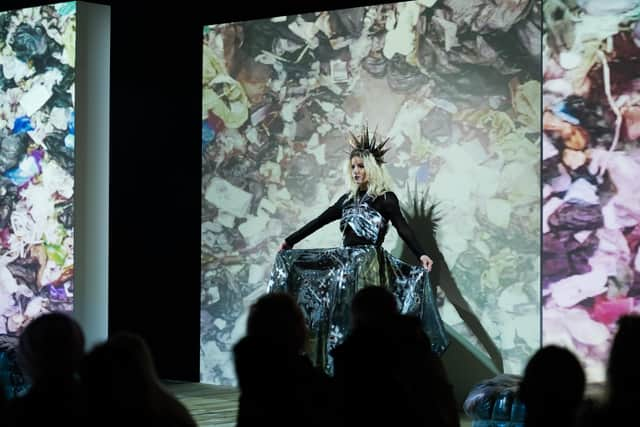Four star review of Common Wealth theatre company's production Fast, Fast, Slow
Bradford-based theatre company Common Wealth really are in a league of their own when it comes to making compelling, visceral work that addresses urgent contemporary issues. Not only do they tackle sometimes challenging themes head on, they also seek to effect social change through their innovative, collaborative storytelling.
Their latest show – Fast, Fast, Slow which explores fast fashion, waste and our complicated relationship with clothes – is a perfect example of their consciousness-raising approach. Many of us may not be aware that much of the fashion waste created by the Global North ends up in landfill, not here in our own backyard, but in some of the poorest countries in the developing world.
Advertisement
Hide AdAdvertisement
Hide AdThis is one of the many sobering facts that we learn during the course of the production, which takes the form of a high-end designer fashion show. Seated on either side of a runway made of used clothing bales, the audience is presented with six collections of clothing modelled by a diverse range of non-professional models and we hear personal stories from community performers about clothes – they include the joy of buying and owning them, the pain of body dysmorphia, clothes as urban protection and what can be achieved through creative upcycling.


In a filmed segment, Kwamena Boison and Yayra Agbofa, the co-founders of The Revival, a community-led sustainable design and campaigning organisation in Accra, Ghana speak about the cutting-edge, imaginative work they are doing, partnering with stall holders at Kantamanto market, the largest second-hand clothing market in west Africa. This is perhaps the most inspiring, moving and thought-provoking part of the whole show. Footage of the literal mountain of used clothes imported from the Global North polluting the landscape around Accra is particularly hard to watch but the solution-focussed attitude of The Revival does offer room for hope.
It is a complex show that incorporates several strands, moods and themes which all ultimately combine to provide both the starting point for debate and a powerful call to action. We are all on this planet together and as Boison, who in a lovely coup de theatre actually appears live at the end of the show, points out ‘we need to take care of it and each other’. That means thinking about our choices and changing our behaviour.